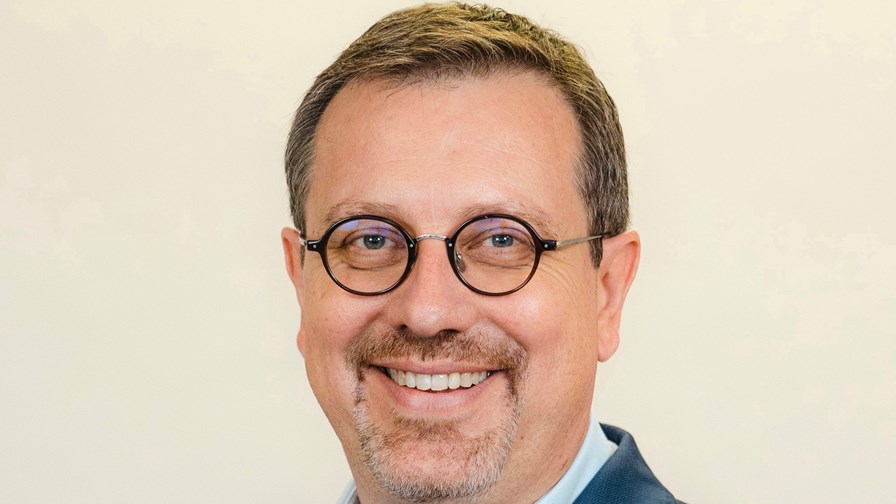
Jérôme Hénique, CEO of Orange Middle East and Africa
- Orange switches on a 5G network in Africa for the first time, choosing Botswana for the milestone move
- 5G fixed wireless access (FWA) is seen as key for the telco as the cost of 5G-enabled handsets is still a challenge
- The telco plans to launch 5G in six other markets in the Middle East and Africa next year, but this depends on regulatory agreements
Orange has launched its first commercial 5G network in Africa, having acquired spectrum in the 3.5GHz band, with the initial aim of luring consumer and business customers in Botswana before rolling out next-generation services to six other markets in the Middle East and Africa regions in 2023.
During a virtual media briefing, the CEO of Orange Botswana Néné Maiga said the operator’s 5G service now reaches 30% of the country’s population through its rollouts in and around Gaborone, Botswana’s capital, and the city of Francistown. It plans to expand coverage to other cities in early 2023.
The move is aligned with Botswana’s ambition to become “one of Africa’s front-runners in ICT [information and communications technology] and Orange Botswana is very proud to contribute to that”, said Maiga. 5G will bring “a wealth of possibilities” in the shape of connectivity “that is as good as fibre” for consumers and new opportunities for businesses through specific use cases using 5G, including in cloud computing, automation and artificial intelligence (AI), she explained.
Jérôme Hénique, CEO of Orange Middle East and Africa (pictured above), added that this “milestone” will complete the telco’s portfolio in the market, which already includes 4G mobile and fixed broadband (including FTTH) services. “It will allow us to connect people not only on mobile phones, but as well with fixed wireless access (FWA) services. This is our main strategy for launching 5G in Africa and we are very glad to start with Botswana”, he stated.
For the launch, the company has unveiled 5G FWA and mobile data bundles, targeting residential customers and small and medium enterprises. Maiga highlighted the lack of widespread 5G-capable mobile devices in Botswana as a barrier to swift 5G mobile service adoption but expressed hope that this will change as prices are expected to dip below $150 per handset soon. She added that FWA is a “main use case” for the telco, so it provides the necessary customer premises equipment (CPE) devices to subscribers “at a reasonable price”.
The operator already has FWA experience in Botswana, where half of its 2 million broadband services customers are connected via 4G-enabled FWA, and the other half via fibre connections, but 5G FWA will enable a broader range of service options.
Indeed, device affordability challenges means FWA is “a key focus” for Orange in Africa and this is where it has different priorities from Europe, noted Hénique. “This is why we focus much more in Africa on home connectivity… FWA, providing the router [CPE] to customers, and affordable offers. And there is really a need for that as we saw during the pandemic – the expectations and the demand for home broadband solutions is really booming”, he argued.
By comparison, he noted, in Europe, the focus for Orange is much more on 5G mobile services for business and consumer customers with smartphones. Apart from rolling out FWA for better home internet connectivity, businesses “are really a target for us, particularly in industries that could benefit from more automation to ensure safety and enhanced connectivity”, said Orange Botswana’s Maiga.
Orange is also exploring “many use cases for large B2B accounts” in areas such as mining and ports, explained Hénique. Other potential 5G-enabled applications include e-health, connected vehicles and cities, real-time gaming, smart homes and learning through virtual reality (VR) and augmented reality (AR). One such use case is a project with MRI Botswana for creating a connected ambulance, allowing doctors to guide paramedics “through life-saving procedures on their way to hospitals” – something that “would not have been possible without 5G”, according to the company.
“There is a business model for fibre-to-the-home (FTTH) and business in Africa,” according to Hénique, and 5G will act as a complementary technology or to cover areas where Orange does not deliver fibre connectivity.
Further 5G push in Africa and the Middle East
After switching on 5G in Botswana, Orange plans to launch next-generation networks commercially in six other markets in the Middle East and Africa in 2023.
First is expected to be Jordan, followed by Ivory Coast and Senegal, where Orange is in discussion with the regulators.
Hénique acknowledged that the operator might face some difficulties obtaining the required spectrum in some countries because “some of those frequencies could have been allocated for 4G FWA previously. So that’s the kind of discussions we can have with the governments and regulators on a case-by-case basis”.
- Yanitsa Boyadzhieva, Deputy Editor, TelecomTV
Email Newsletters
Sign up to receive TelecomTV's top news and videos, plus exclusive subscriber-only content direct to your inbox.




